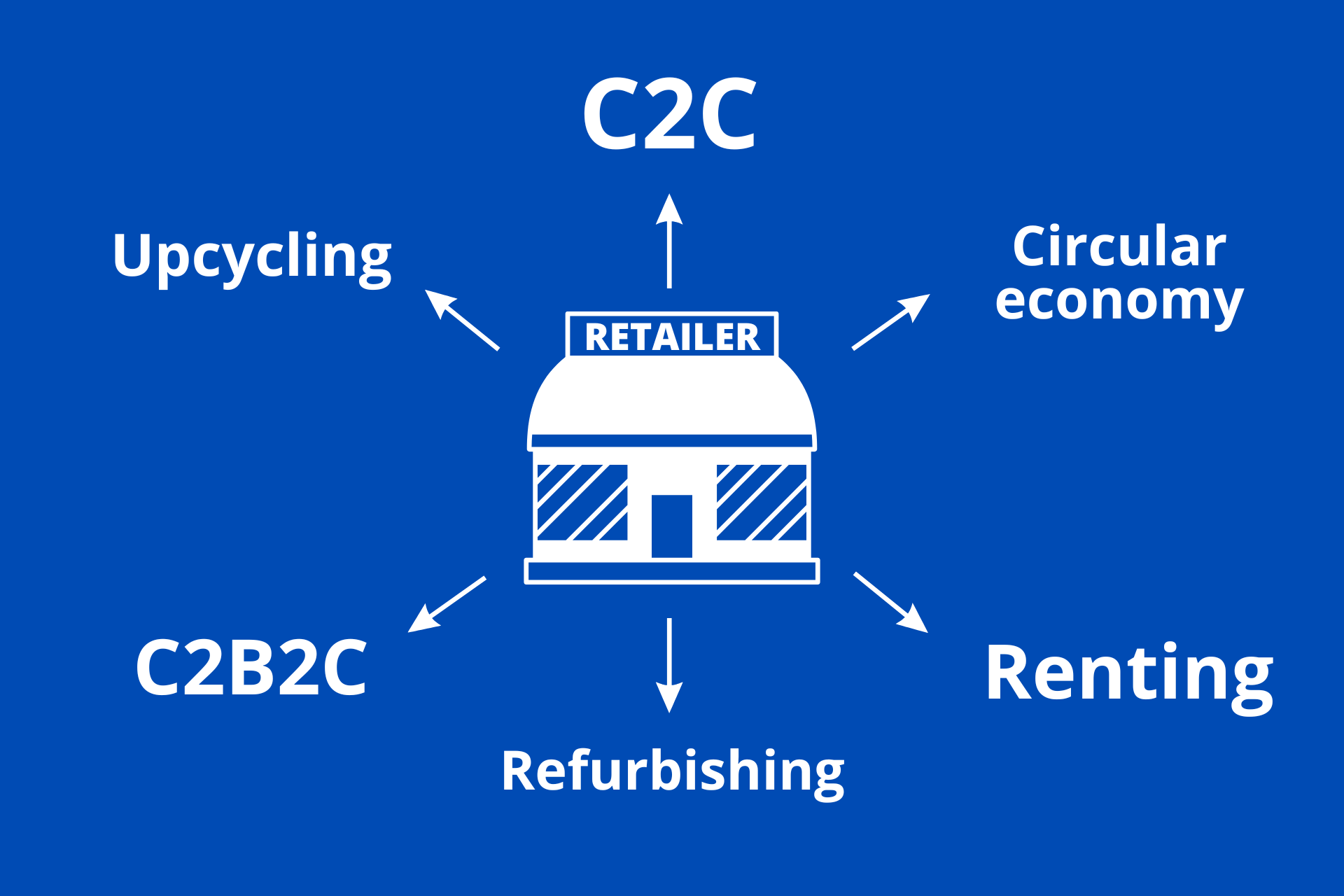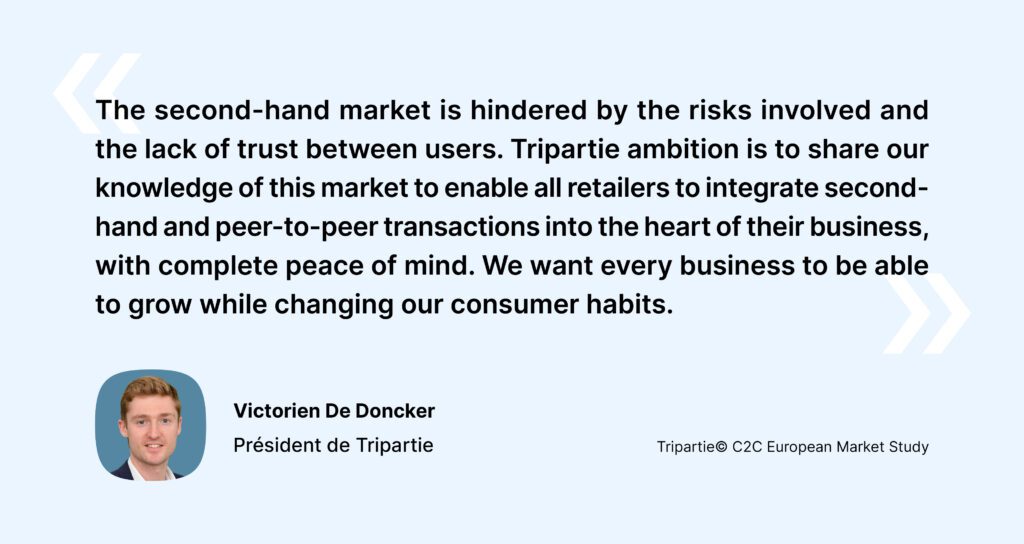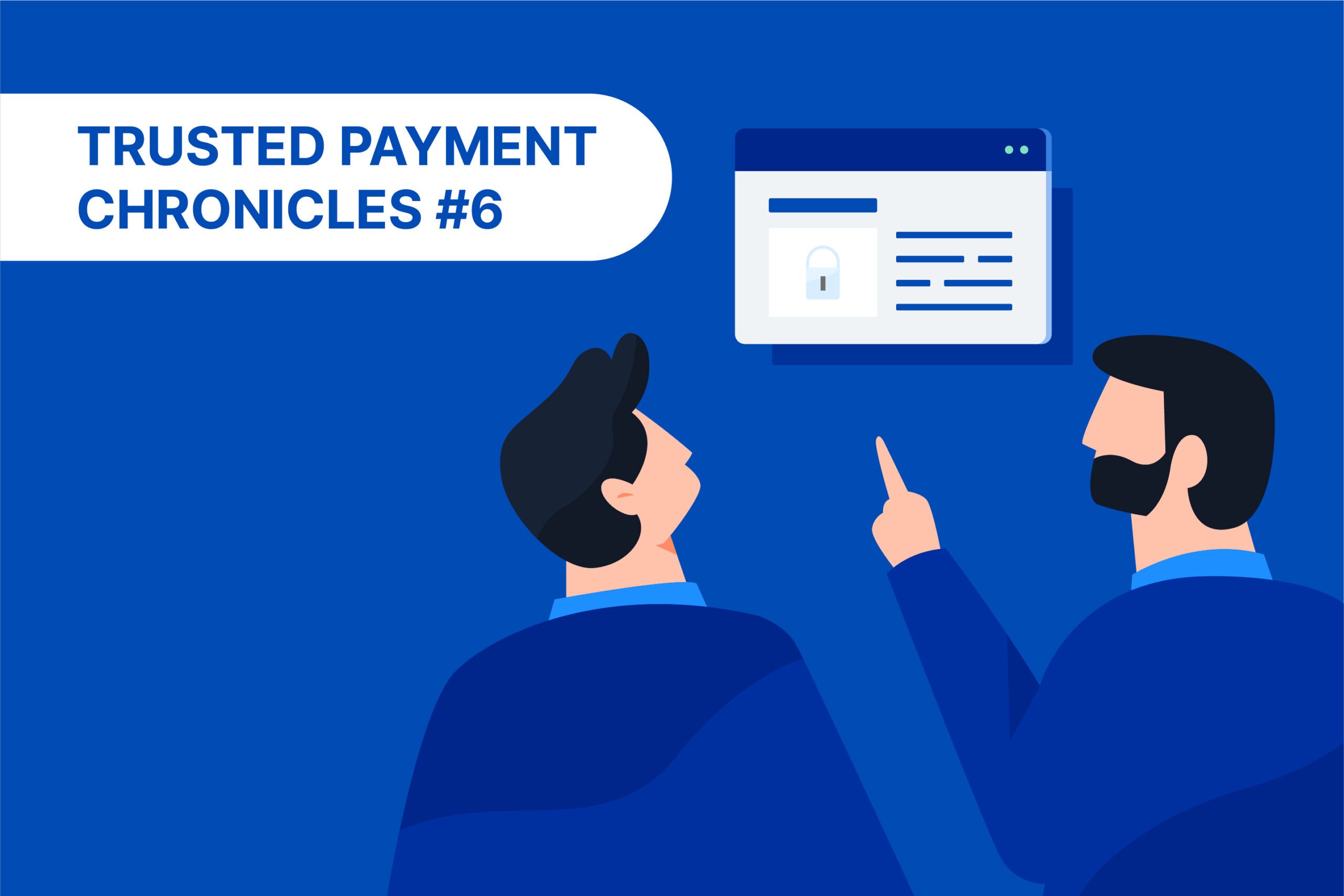Retailer: creating a second-hand offer, the winning strategy? Article
August 1, 2023

We live in an era where sustainability has become a requirement for companies that want to remain competitive and relevant. In this context, the second-hand market, once considered marginal, has undergone a profound transformation.
It is now booming, driven by the decline in purchasing power and the ecological considerations of our citizens (seeComprehensive European study of Tripartie including up-to-date macroeconomic figures and trends). Creating a second-hand offer can therefore prove to be an effective commercial strategy: we will see how the hybrid offer, an ingenious mix of different second-hand sales models, is a good way for retailers to make this shift.
The content you will find within this article:
The evolution of the second-hand market
The second-hand market has undergone a profound transformation. Once associated with old-fashioned clothes, worn-out items and faded books sold in old shops, it has now taken on a whole new face. Today, it is synonymous with high-end fashion items, technological products and even designer furniture.
This shift is largely due to the emergence of Gen Z, who are putting sustainability at the heart of their consumption habits. In addition, it is supported by a change in societal attitudes towards consumption, with a growing awareness of environmental issues.
Definition of the hybrid offer
In response to these trends, a new sales approach is emerging: the hybrid offer. This innovative proposition combines the sale of new and used products in the same sales space, whether physical or online. This strategy takes advantage of the best of both worlds: it meets the demand for new products while capitalising on the growing interest in second-hand products.
The goal is to offer customers a wide choice while adapting to their budget and environmental concerns. The different models that make up the hybrid offer are C2C, C2B2C, rental, reconditioning, upcycling (consists of recovering materials or products that are no longer used in order to transform them into materials or products of higher quality or utility), and many others.
Benefits of a second-hand offer for retailers
Adopting a hybrid second-hand offer has many advantages for retailers. First of all, it allows you to reach a wider audience by catering to the needs of different consumer segments. Some are looking for new items while others are attracted by the economical and sustainable aspect of second-hand products. In addition, by positioning themselves as an environmentally responsible company, retailers can improve their brand image and attract consumers who are aware of the impact of their consumer choices.
An excellent example of this strategy is the Decathlon platform dedicated to the sale of second-hand and refurbished items. Indeed, Decathlon offers a second-hand offer in store with a dedicated corner. This initiative allows Decathlon to reach new customers and strengthen its brand image as a leader in sustainability, while offering a wider and more eco-responsible choice to its customers.

Challenges in setting up a second-hand offer
However, the creation of a second-hand offer is not without its challenges. Retailers have to overcome hurdles such as inventory management, pricing, and quality assurance of used or refurbished products. For example, they need to establish rigorous criteria to assess the condition of products and determine their price accordingly.
One of the solutions to these challenges is to have the right technology. SaaS digital tools can help manage inventory efficiently, track second-hand market prices, and ensure rigorous quality tracking. Educating the consumer is also crucial to make them understand the value of second-hand products and help them make informed choices.
Winning strategy to create your second-hand offer
The hybrid offer is a winning strategy in today's context, where sustainability is a major issue. It offers retailers the opportunity to differentiate themselves in the market, attract a wider customer base and remain relevant in the face of new consumer expectations. Furthermore, it enables them to meet the growing demand for second-hand products without having to give up the sale of new products.
Ultimately, retailers who adopt a hybrid offering have a unique opportunity to contribute to a paradigm shift in consumption and position themselves as players in the transition to a more sustainable and responsible consumption model. To find out more, read our article on the 10 tips and tricks to perform on the second-hand market !
Controlling your secondary market is crucial
For retailers, maintaining control over the secondary market by creating their second-hand offer is of major strategic interest. Indeed, allowing users to exchange products with each other, without the company's intervention, can lead to a loss of control over several essential aspects.
Firstly, product quality control. When exchanges are made without the company's supervision, there is no guarantee that used products meet specific quality standards. This can potentially damage brand reputation if customers end up with defective or low-quality products.
Secondly, the control of the customer experience. A face-to-face exchange between users can result in an inconsistent or unsatisfying shopping experience, which could deter customers from returning. By keeping a grip on the secondary market, businesses can ensure that the shopping experience remains positive, consistent, and aligned with their brand.
Thirdly, income control. By facilitating the exchange of second-hand products, businesses can generate additional revenue. This is a significant advantage, especially at a time when many industries are facing increased competition and shrinking margins.
In short, retaining control over the secondary market gives companies greater control over their brand image, customer experience and revenues. It is a strategy that is in line with a long-term vision of customer relations and sustainability, and one that can prove particularly beneficial in the current consumer context.
Final Words
The rise of the second-hand market and changing consumer sustainability behaviors have transformed the retail landscape. In this context, the hybrid offer is emerging as a particularly relevant strategy, capable of meeting both environmental responsibility requirements and the diversified expectations of consumers.
In addition, maintaining active control over the aftermarket allows companies to ensure product quality, provide a consistent customer experience, and generate additional revenue. All these elements contribute to the sustainability and success of the company in an increasingly competitive business environment.
Retailers who embrace this hybrid approach are therefore positioning themselves not only as innovative economic players, but also as active contributors to the transition to more sustainable and conscious consumption. Second-hand is no longer just a niche sector, but a strategic opportunity in its own right to reshape the retail industry and positively influence our collective future.
Thinking of creating a second hand offer?
Tripartie enables retailers, marketplaces and large companies to enter the peer-to-peer and second-hand market rapidly, without operational and reputational risk.
Tripartie has a trust-based approach and provides a set of tools to ensure secure, compliant transactions and efficient resolution of user disputes. Book a product demo!



